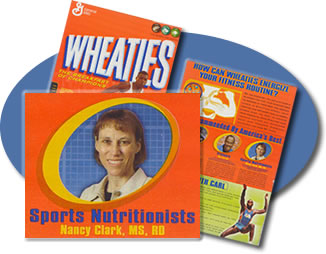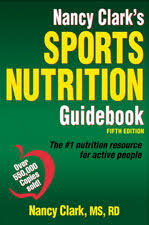People in the ultra world tend to be ultra in their non-running world as well. One particularly polarizing topic is that of ultra nutrition. It seems that there are 2 camps of thought in the ultra runner diet, and both are ‘ultra’ and extreme. For example, some people have no problem limiting their diet to a vegan menu and completing extremely impressive ultra runs—such as setting the FKT on the Appalachian Trail. Other people have no problem eating like a human dumpster, pouring candy and beer down their throats and completing extremely impressive ultra runs—also such as setting the FKT on the Appalachian Trail. (FYI both of these records have been broken by another runner this past summer, whose diet is less publicized but I know it involved lots of pizzas.)
I found myself to be in the latter camp of dieters. I eat what I feel like eating before, during, and after a race… pretty much all the time. Chug a pint and then run? Yes. Taco bar mid race? Fuck yes. Gummy bears? Bacon? Oreos? Yes, yes, yes! I never really thought too much about calories, other than I need them regularly and I need them to stay down nicely. I usually ate whatever looked the most appealing to me at any given point in a race and I admit that I’ve been doing just fine for the most part. I don’t bonk, I keep my mind about salt levels and hydration and just try to get carbs and sugars in me.
So then what prompted me to buy and read this book by Nancy Clark on sports nutrition? That’s pretty simple. Races are fun and I like running them, however, training was a real suck. My legs never felt fresh enough on training runs, even after adding more rest days into my routine. I felt fatigued often and early and my motivation was foundering. I bought this book for general insight, as I had a suspicion that my nutrition or iron levels might be adding to this training issue. I wanted to learn about optimizing my diet, but I ended up learning a whole lot more.
First, a little about Nancy Clark. A quick read through her bio on her website tells me that she is located just next door to me right now, so that’s amazing. Her office is in Newton Highlands, MA where I’ve run through a bajillion times. She’s helped many players on the Celtics and Bruins manage their nutritional needs, as well as countless others with her book, which has sold over 600,000 copies (!!!!) and while she helps many athletes be the true badasses that they want to be, Clark is herself a total badass! Taken from her page:
Sports and nutrition are personal as well as professional interests. A member of The Greater Boston Track Club, Clark has competed at the 10 Kilometer, half marathon, and marathon distances. Clark routinely bike commutes and enjoys bike touring. She has led many extended bike tours, including a Transamerica Trip and other tours through the Canadian and Colorado Rockies. She has trekked into the Himalayas and planned the high altitude menu for a successful expedition. She has personal experience with rowing (crew), yoga and HIIT.

Her advice has been quoted on a Wheaties box. I mean, c’mon!
So basically, I love her.
This book has a great style. It’s not a textbook, it’s not a memoir. It’s just useful.
- Nancy is a realist. She writes about practical solutions to people who are not going to have time to only think about their diet throughout the day. She gives ideas for when to have types of foods that taste good but aren’t good for you, tips on how to have meals with a busy schedule, and advice for busy athletes who might skip meals to binge later. Nancy knows that we aren’t going to count out all our micros every day and that some days we might not eat ideally and she lets us know that it’s fine. We aren’t doing our bodies damage for enjoying a meal out. She also lists ways to cohesively tackle nutrition throughout the day so that one meal is not more important than another.
- Nancy writes in ideas for specialty diets as well. She has plans for vegetarians, vegans, calorie restricted weight loss, gluten-free, etc.!
- She also uses stories of athletes who are often very relatable to nail home points. She’ll talk about John who was a medium distance runner who never has time to eat before his workout. Or Renee, a college student swimmer who doesn’t have time to eat lunch so she binges at dinner. These characters make the book easy to digest… no pun intended!
- Nancy knows her science. The book has studies cited throughout it to break apart common myths and misconceptions about nutrition. Nancy lays down the scientific evidence (or lack thereof) to support or refute many claims. Anyone who knows me knows I love some good scientific evidence behind all claims related to anything, but especially related to health.
I’m not going to give away everything that I learned from this book, but here are some snippets of useful or interesting facts and topics:
- During your pre-event carbo load, you should gain about 2 to 4 lbs of water weight. When carbs are processed to return glycogen stores to the muscles, they need to absorb water to do so. Your carbo loading week should be accompanied by tons of water.
- Caffeine prohibits the uptake of iron. So if you have a coffee or tea with your burger, you are not getting any iron. Have the coffee or tea +/- 1 hr from the time you eat your burger!
- What is causing your muscle cramps? Science doesn’t really know yet, but it’s likely salt and water deficits. But it could be calcium, magnesium, or potassium.
- Are sports drinks like Gatorade and Powerade good or bad? Her answer is “yes”. There are times and places for those types of drinks and they aren’t always good and they aren’t always bad.
- To rehydrate after exercise, continue to drink light to moderate amounts of water spread out over at least a couple of hours if not the rest of the day to best replenish. Large water doses usually just end up as urine and are not taken into the muscles and will instead trick you into thinking you are hydrated when you are not.
- Protein is not the ‘be all, end all’ of building muscles. Carbohydrates are still the most important fuel for ANY athletic event or training program. Protein in modest amounts consumed as a recovery meal will help restore muscles, but excess protein can cause problems. An endurance athlete should aim for 0.6 g/lb of body weight of protein intake per day. (Nancy has these estimates scattered throughout the book for various other types of fuel or vitamins and nutrients.)
- Eat a big breakfast, lunch, snack(s), and then a smaller dinner. Go to sleep full but not stuffed. You want to wake up hungry. This is the best way to maintain your weight with a regular diet. Also, eating some foods before sleep will mess with other important processes the body is doing during sleep.
This book has been such an excellent, useful, easy to read resource that I couldn’t help but write something about it here. So many of my friends are concerned about training needs, performance, and diet that I think this book is really worth reading. My diet has changed since starting this book last year—I mostly try to eat each meal with multiple food groups and multiple types of sugars and carbohydrates with moderate amounts of protein, from multiple sources. I also have to admit that I’ve started to feel more energized regularly and recover faster from longer runs or hard workouts. I don’t know if I can credit the diet only—I also have been stretching more—but the diet certainly helps.

If anyone has this book, what are your thoughts on it?
And if anyone reads this book—please share what you think was useful! I’d love to talk about nutrition strategy!
